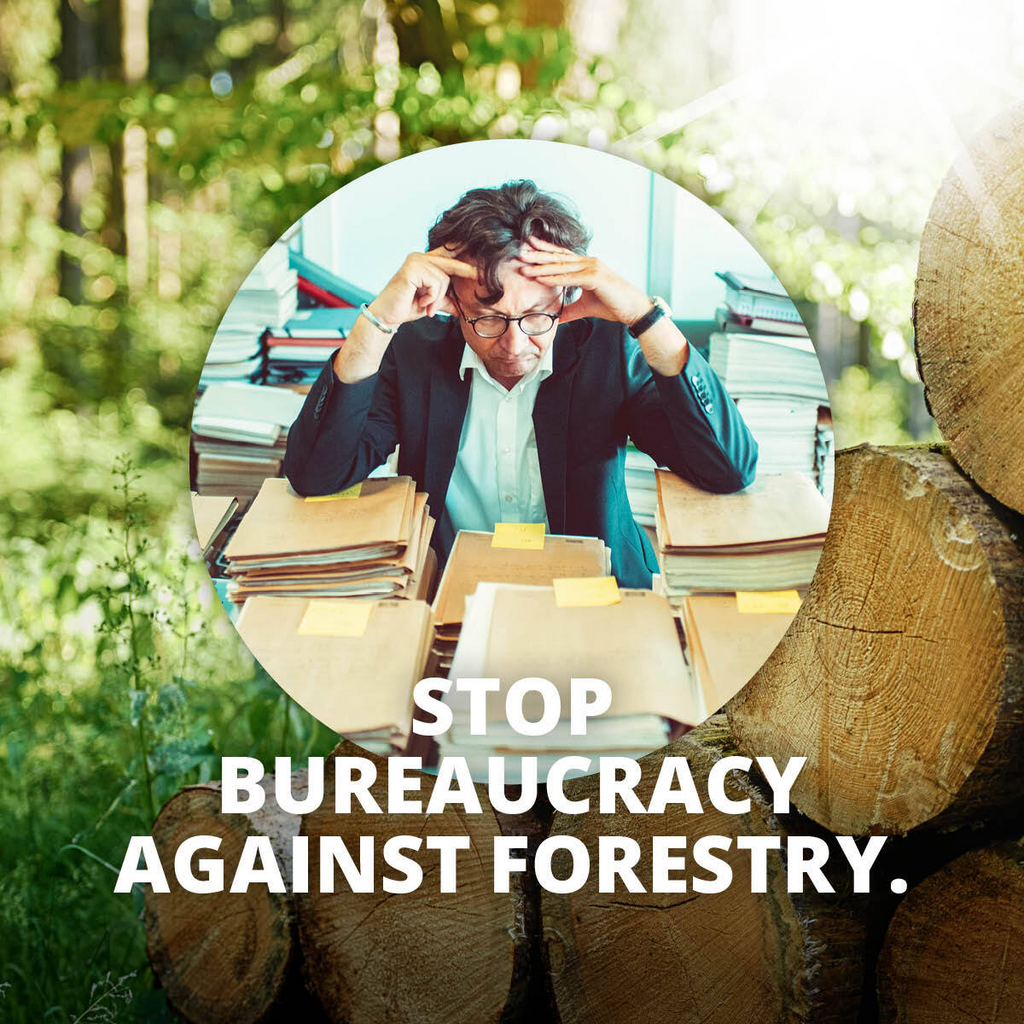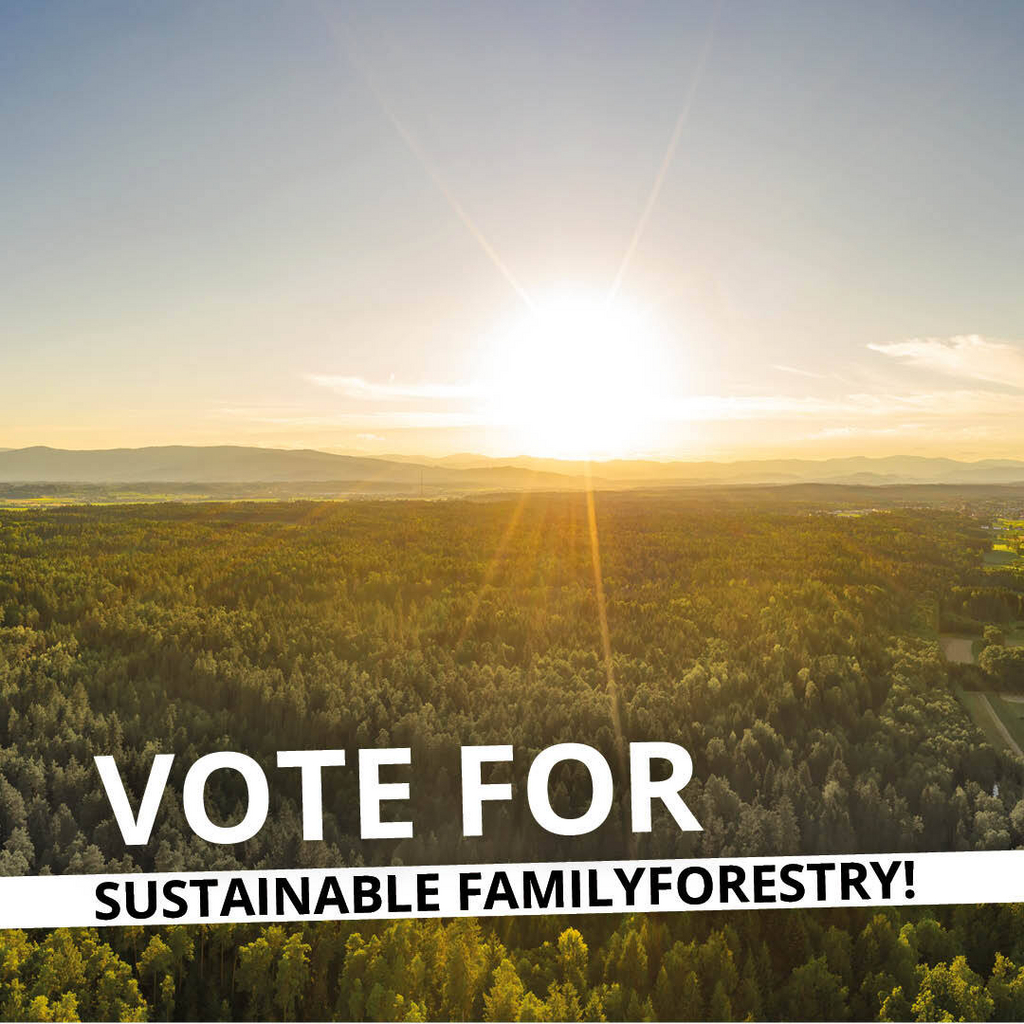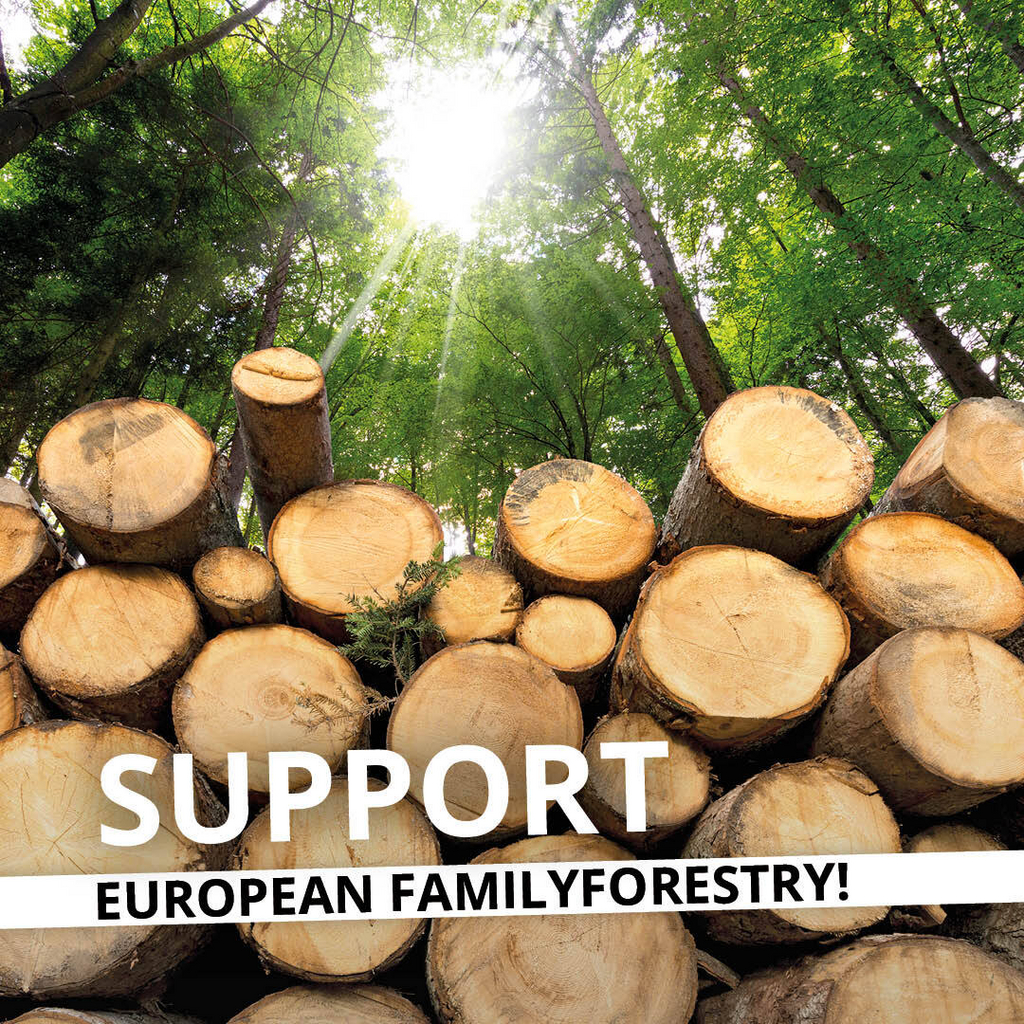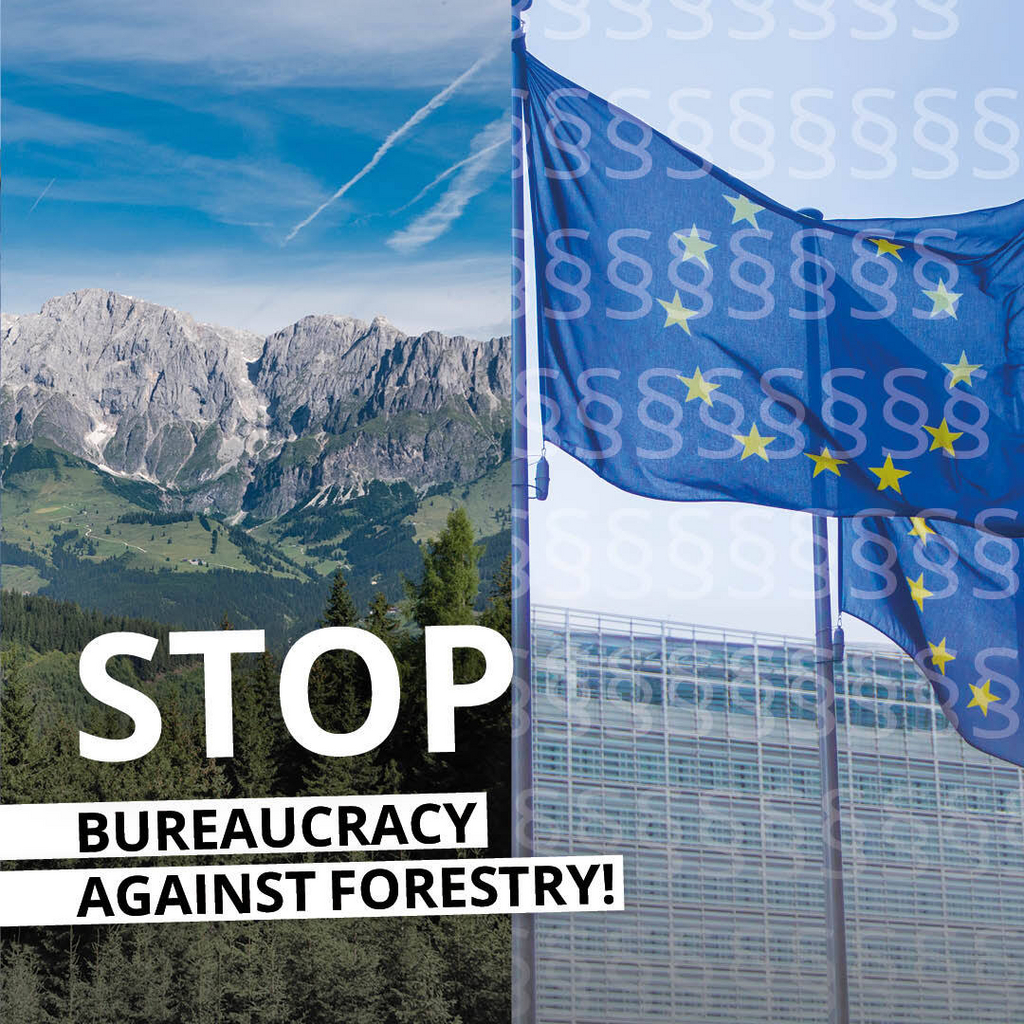User login
Enter your username and password here in order to log in on the website
European Forest Management in Danger!!
European Parliament voting on September 13 and 14

European Forest Management in Danger!!

In the upcoming week, important forest and climate policy votes are on the agenda in the EU Parliament (EU Forest Strategy, Regulation on Deforestation-Free Products, RED III - Renewable Energy Directive). However, the present drafts contain many barriers and impediments for active sustainable forest management and pose a massive threat to it. They are representing a misguided forest and climate policy.
The following points are particularly critical in the view of the experts and need to be changed in the vote:
Regulation on Deforestation-Free Products
While in principle, efforts to limit deforestation in third countries through European consumption are to be supported, these must be in line with other objectives such as the Bioeconomy Strategy and without disproportionate bureaucratic burdens for operators and producers, as envisaged in the proposed draft.
The regulation proposes that operators who place products from wood, cattle, cocoa, coffee, soy and palm oil on the EU market for the first time, or export them in third countries, must in future comply with a much stricter due diligence obligation and prove in elaborate manner that the production has not led to deforestation.
Critical points, among others, concern the following:
- Problematic definitions:
- Terms such as "deforestation", "sustainable harvesting operations" and "forest degradation" and others are redefined in the proposal, even though internationally recognized definitions already exist. In the future, this could mean for example that normal management and maintenance interventions in the course of sustainable forestry could be considered "forest degradation".
- Disproportionately high bureaucratic burden for operators:
- To verify that a product is deforestation-free, very detailed information is required to be submitted to the authorities, including GPS data and personal data of customers and trading partners.
- The bureaucracy and additional costs associated with these requirements would distort international market competition and turn Europe into an unattractive trading partner.
- Follow-up delegated acts already announced to further tighten the law:
- The proposed future extension of the scope of the ecosystems concerned as well as the products treated as commodities through delegated acts would be questionable under consideration of democratic principles, as the participation of member states in the legislative process would be severely restricted.
- In addition, an expansion to other ecosystems would heavily affect food supply among other things and is therefore highly questionable.
- Proposed controls out of proportion:
- The extent of the proposed, unannounced inspections through authorities, as well as charging the costs of these to non-compliant operators, is neither expedient nor acceptable.
- Providing access to justice for outsiders reporting misconduct without any restrictions would risk a reversal of the burden of proof to the disadvantage of the accused operator.
- Process of identifying high risk areas yet to be clarified:
- Countries that are classified as low risk countries are supposed to be subject to a reduced due diligence obligation. However, it is still unclear how these countries will be identified and classified.
Renewable Energy Directive RED III:
The European Council has already taken a position against a delegated act on cascading wood use and insisted on the inclusion of SFM (Sustainable Forest Management) criteria.
In general, the proposed restrictions on the energetic utilization of woody biomass would be a severe setback in the fight against climate change. In order to reduce CO2 emissions and in line with the bioeconomy strategy, it is important to promote the replacement of fossil raw materials with renewable ones instead of increasingly restricting their use.
Critical issues include the following points put forward for discussion:
- Distinction of primary and secondary biomass and a legal act on the cascading use of biomass:
- According to a proposed definition, primary biomass refers to wood directly derived from the forest, while secondary biomass refers to by-products and waste from the wood industry and the cascading use of wood products for energy purposes. According to the proposal, the energetic use of primary biomass is to be excluded from financial support and can no longer be counted in the share of renewable energies for the EU climate targets. This penalizes any amount of material that contributes sustainably to the replacement and substitution of fossil products.
- On the cascading use of wood products, an implementing act is to be adopted to provide a more detailed framework. Such a legal act would be subject to a greatly reduced legislation process and is therefore to be strictly rejected.
- „No-Go-„areas in highly biodiverse forests:
- "Old-growth forests" and forests of high biodiversity are to be defined as "no-go" areas for the use of biomass. Here, the extraction of energetic biomass can be either restricted or banned completely. Furthermore, there is still no EU-wide, agreed definition for the term "old-growth forests". Such an indiscriminate restriction must be prevented.
- Further direct restrictions on forest management:
- The draft proposes a detailed list of criteria for sustainable forest management. This not only makes it difficult to take local conditions into account, but also ignores the principle of subsidiarity and the agreed criteria for sustainable forest management recognized in the Forest Europe process.
EU Forest Strategy
The proposed Forest Strategy massively interferes with Member States’ competences and property rights. With a generalized, “one-size-fits-all” approach for the treatment of great a diversity of different ecological and socio-economic conditions in European forests and among forest managers, the sustainable provision of multifunctional forest services will suffer greatly. With the upcoming voting on the Report of the European Parliament, there is a chance to change the Strategy’s course. The Parliament is therefore well advised to avert the critical developments mentioned in the Strategy.
Critical issues:
- Setting aside additional forest areas:
- The strategy sets ambitious conservation targets: Forests will have to contribute to the plan already set out in the EU Biodiversity Strategy to place 10 % of the country's land under strict protection. Here, strict protection is understood as the prohibition of any intervention for utilization. All "old-growth forests" (term not yet defined) and primary forests are also to be placed under protection. Protected areas and set-asides in commercial forests are also envisaged.
- Direct intervention in management practices planned:
- The strategy paves the way for concrete, mandatory management measures (such as increasing the amount of deadwood in all forest) that are already part of a new legislative proposal for the restoration of nature. Forest types altered by humans are to be restored to their original state - in orientation to the 1950s - instead of being actively adapted to climate change and future challenges.
- Denial of the competence of the forestry sector:
- Among other things, new guidelines for "closer-to-nature forest management" should be developed. The previous criteria for sustainable forest management, which have been developed and established in a well-founded and participatory manner as part of the Forest Europe process, and which allow the individual, local conditions of Europe's very diverse forests to be taken into account, are no longer considered sufficient.
- In addition, a new certification system for sustainable forestry is being considered. Among other things, this would lead to the established, independent certification system PEFC becoming redundant.
With a social media campaign (see on the right), these undesirable developments are being pointed out these days. We are urgently calling for the present drafts to be amended in the plenary.











